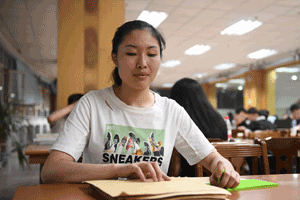Blueprint to boost jobs for youths
|
Panelists and guests pose for a group photo at a youth talents-themed roundtable conference, co-organized by Recruit, the Hong Kong Management Association and China Daily Hong Kong. Photos Provided to China Daily |
Industry gurus call for urgent steps to tackle labor disparities in Hong Kong to increase employment prospects for all

Hong Kong may have been fortunate enough seeing full employment in the past five years, but it does not equate to being a bed of roses, and there's no room for complacency.
Employees remain plagued by a slew of hitches - a lopsided job market, and critical issues like growing unemployment among youths, mismatch in job skills and a lack of career upward mobility - that have seriously impeded the market's healthy advance, a roundtable has heard.
Experts have come up with a raft of remedial measures, such as reinforcing vocational education, improving career planning education at secondary schools and universities aimed at changing the mindsets of parents and school principals, transforming the obsolete employment practices of enterprises, promoting the right entrepreneurship spirit among young people, and identifying growth pillars to boost jobs.
At the roundtable held on May 19 by recruitment service provider Recruit, and co-organized by the Hong Kong Management Association (HKMA) and China Daily Hong Kong, government officials, academics and industry pundits shared their insights on cultivating a roadmap to tackle the city's deeply-rooted labor problems.
Hong Kong's jobless rate stood at 3.2 percent in the first quarter of this year, having hovered between 3.2 and 3.5 percent in the past five years, signifying the SAR's full employment status.
But the number of youths without jobs has been relatively high. In the first quarter, the unemployment rate among those aged between 15 and 19 stood at 11.7 percent, while it was 7.8 percent for those between 20 and 24 years old.
Youths now opt for a "work-life" balance, stressing the importance of "life" over "survival". They tend to take up many part-time jobs instead of a full-time post, or change jobs frequently.
Graduates' aspirations dented
Career upward mobility is also on the wane, with more local graduates unable to land managerial jobs in recent years and forced to do low-paying clerical work.
According to the Legislative Council Secretariat, about 47 percent of new job seekers with university degrees were employed as professionals, executives and managers from 1994 to 2001, but the ratio plummeted to 38 percent between 2008 and 2015.
On the other hand, some 12 percent of new job applicants with university degrees found jobs as clerks, services and sales personnel from 1994 to 2001, with that ratio rising to 26 percent from 2008 to 2015.
Skyrocketing rents and declining opportunities in the manufacturing and trade sectors have resulted in less Hong Kong people moving up the social ladder by starting their own businesses. In 2015, only 9 percent of Hong Kong people aged below 34 years became bosses in their respective trades among the city's total number of employers - a far cry from 25 percent in 1991.
Besides rising youth unemployment and weaker career upward mobility, a mismatch in labor supply and demand is rampant in the fields of engineering, aviation and healthcare.
"Most people usually think the aviation industry only offers such jobs as flight captains and cabin crew but, actually, it bestows a variety of aircraft engineering jobs," said Ben Wong Ching-ho, chief operating officer at Hong Kong Airlines, which has been operating for more than a decade.
"As Hong Kong progresses to become a center of aircraft financing, leasing and training, there'll be tremendous demand for aircraft engineering jobs, but parents have scanty knowledge of the industry," he noted. It's estimated that the number of people working at Hong Kong International Airport will balloon to above 100,000 on the scheduled completion of the third airport runway in 2023.
The labor disparity is also evident in the medical care sector. Currently, there are 39,000 registered nurses in Hong Kong who are unable to meet the huge demand for medical services, with pharmacists, occupational therapists and physical therapists as the pick of the crop.
"Although the industry provides the roadmap in the career ladder, the crux of the issue here is that young doctors and pharmacists no longer want to play the game because their job values place greater emphasis on the quality of life and freedom rather than a commitment and incentive to their families," stressed Joseph Lee Kwok-lun, who represents the medical sector in the Legislative Council and heads the Association of Hong Kong Nursing Staff.
Threat of recession
Another niggling factor is that youth employment may be clouded by changes in the macroeconomic environment.
"Economic recession may be on the horizon as US interest rates are likely to climb further. If the overall jobless rate goes up, youth unemployment is also likely to rise," warned Lau Ming-wai, chairman of the Commission on Youth - a government advisory body charged with formulating youth policies.
"If the government can coordinate the policies involved and enhance the industry value chain, university graduates with degrees and the necessary knowledge still have the niches to increase their employability. The government must introduce specific policies to foster job market development," Secretary for Labor and Welfare Stephen Sui Wai-keung told the roundtable.
The panelists agreed that five key remedial steps need to be taken to deal with the intricate problems of youth unemployment, job skills imbalance and the lack of career advancement opportunities.
Firstly, the government should strive to upgrade vocational training to nail the perception that vocational education is inferior to a university degree as far as career prospects and salaries go.
It's estimated that 52 percent of the degrees awarded in Hong Kong come from universities, while vocational training schools account for just 26 percent. This is in stark contrast to the situation in Singapore and Switzerland where vocational schools take up 70 percent of the total number of degrees awarded, with universities accounting for the rest.
"In some European countries, vocational schools are rebranded as applied science universities to reduce the social stigma on vocational education. In Hong Kong, although the government offers subsidies to increase vocational education degrees in various subjects to meet market demand, the stigma effect still prevails," noted Raymond So Wai-man, dean of the continuing education school at Hong Kong Baptist University.
Training for apprentices
MTR Corporation - the city's subway operator - has launched an apprentice training projects to train technical and managerial staff, and fully sponsors apprentices for the Vocational Training Council's designated training programs so that they can acquire recognized academic qualifications.
So far, more than 1,500 youths have completed the training, most of whom now hold senior posts in the corporation's engineering departments, or have climbed to management positions, according to the company's website.
"The MTR apprentice program provides the working environment for young people and this formulates a part of life planning education," MTR Academy President Morris Cheung Siu-wah said.
"The graduates can learn professional job training through mentorship and they are contended with that. The dropout rate in our apprentice training program is very low," he added.
Most of the panelists also concurred with the urgency to improve life planning education, while parents and secondary school principals essentially need to be reeducated. Students desperately need industry information and life experiences to help formulate their career choice decisions.
Lau said: "Usually, it's bias on the part of parents that hinders their children from getting suitable jobs for themselves. Some school principals also tend to discourage pupils from joining certain industries with a perceived low image, such as food catering."
Parents and school principals' wrong perception of the prospects for technical jobs show that they have scanty knowledge of the job opportunities in various industries.
HKMA General Manager Titania Woo Chi-kwan pointed out that secondary school teachers who are responsible for career education usually exhibit meager knowledge of the job market. Most secondary schools do not have the resources to conduct comprehensive career education programs, she noted.
"We hope employers can say more about the job market prospects for their respective industries rather than merely giving career talks and stressing their requirements for labor recruitment," Woo urged.
The third remedial formula is to revamp the traditional practices in labor recruitment, staff motivation and human resources management.
"Employers have to retrain mid-range human resources managers so that they can change their recruitment mindset and staff expectations. We have to show more empathy for young workers," said AsiaWorld-Expo Management Chief Executive Officer Allen Ha Wing-on.
"Employers should not be just concerned about how they can recruit staff but have to paint the picture of career ladder paths from the perspectives of job seekers."


























